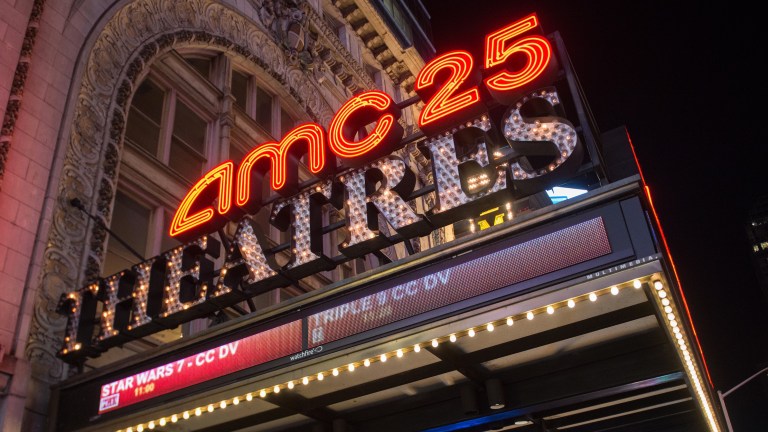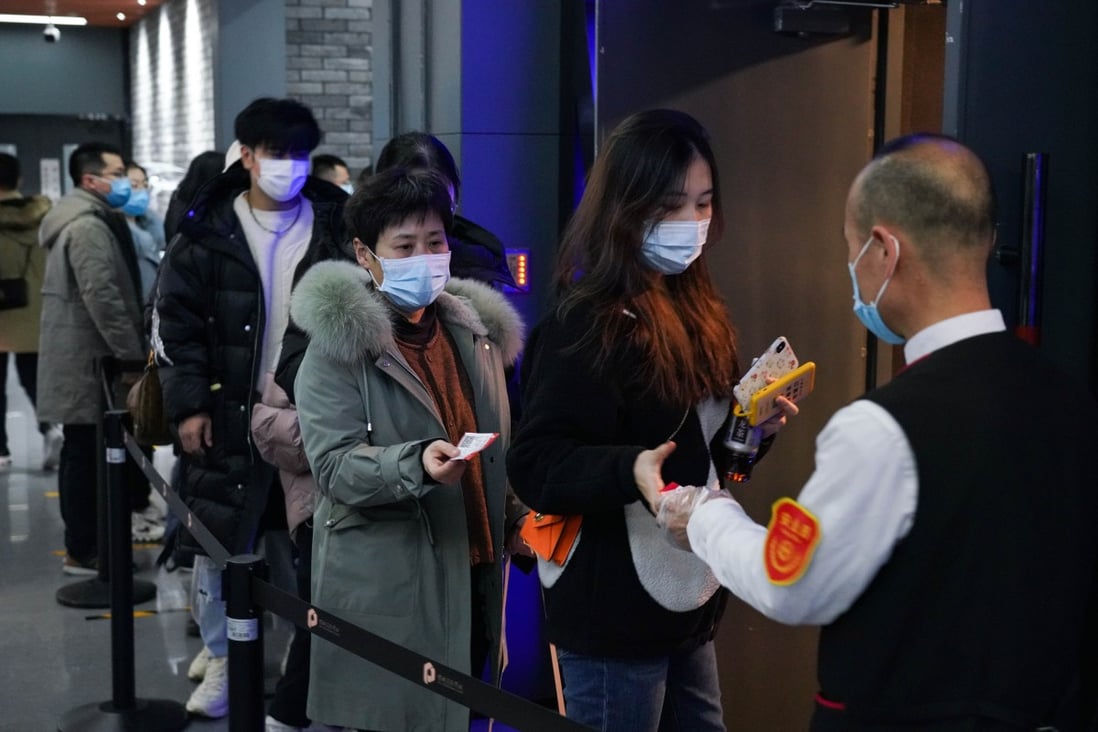Ticking Debt Bomb in China’s $18.1 Trillion Bond Market
Business
China Tycoon Who Lost $32 Billion Tries to Salvage an Empire
By Shirley Zhao, Venus Feng, and Rebecca Choong Wilkins
March 15, 2021, 12:00 PM PDT Updated on March 16, 2021, 2:31 AM PDT
Wanda Group’s cinemas, malls hit by pandemic as debt ballooned
Founder Wang Jianlin’s wealth is now a sliver of its 2015 peak
DALIAN WANDA COMMERCIAL MANA
Private Company
0489737D
DALIAN WANDA GROUP CO LTD
Private Company
3333
CHINA EVERGRAND
15.14HKD+0.24+1.61%
AMC
AMC ENTERTAINMEN
12.85USD-1.19-8.48%
CNY
China Renminbi Spot
6.5060CNY+0.0059+0.0908%
Sign up for Next China, a weekly email on where the nation stands now and where it's going next.
Wang Jianlin used to be Asia’s richest person, busy expanding his Dalian Wanda Group Co. by acquiring trophy assets overseas, all aided by easy credit.
Now the 66-year-old doesn’t even figure among China’s top 30 richest people, having lost about $32 billion of his personal fortune in less than six years -- the most for any tycoon in that period. As Wang seeks to cut the group’s total debt from 362 billion yuan ($56 billion) and turn his entertainment-to-property empire around, he’s facing skeptical bond investors.
Braced for a wall of maturing onshore notes peaking this year, some of Wanda’s dollar bonds were among the first to tumble earlier this month, when a broader decline hit the Asian credit market. The selloff, partly triggered by concerns over the looming payments, came as a warning from investors eager to see how Wang will manage to steer his group clear of the debt risks that convulsed peers such as HNA Group Co., China Evergrande Group and Anbang Group Holdings Co.
“The group’s liquidity is a key consideration for investors,” said Dan Wang, an analyst at Bloomberg Intelligence. A representative for Wanda didn’t respond to requests for comment on the debt risks.
Wanda’s Wang, who once purchased Spanish soccer club Atletico Madrid as part of the binge-buying and aspired to compete with Walt Disney Co., is still shedding some of those assets. The latest came last week, when Wanda gave up control of AMC Entertainment Holdings Inc., with its stake now representing less than 10% of the world’s largest movie-theater chain. Its chief executive officer said the company would be governed by a wide group of shareholders, and the stock has surged more than 42% in the past three days.
Despite the disposals following a government crackdown on credit-fueled expansion, Wanda Group’s debt as of June ballooned to the highest since 2017. The pandemic has only added to the woes, dealing a blow to its cinemas, malls, theme parks, hotels and sports events.
Three Pillars
Malls and hotels accounted for almost half of Wanda's 2019 revenue
Source: Wanda Group
Note: Graphic excludes 7.5 billion yuan in losses from Wanda's other investment activities
As China stabilizes its economy after containing the virus, the reopening of movie theaters and malls is providing Wang the much-needed time to steady his ship. He’s pressing ahead with a strategy he’s advocated for years, called the “asset-light” model, to reduce leverage.
That means spending less by cutting back on land purchases. Dalian Wanda Commercial Management Group Co., one of the world’s biggest mall operators that accounts for almost half of the group’s revenue, will stop buying plots starting this year and license its brand to partners instead, the company’s President Xiao Guangrui told mainland media in September.
No Alternative
“Wanda had no real alternative to its new asset-light strategy,” said Brock Silvers, chief investment officer at Kaiyuan Capital in Hong Kong, who doesn’t hold any Wanda unit shares or bonds. “The company’s debts were unsustainable.”
The effect of the pandemic on Wanda has been astounding.
Movie producer and cinema operator Wanda Film Holding Co. said it may have racked up a record $1 billion in net loss last year. Despite becoming a favorite in the recent Reddit-fueled share rally, AMC warned several times it was near the brink of insolvency and reported its worst-ever annual loss as revenue plunged 77%. Wanda Commercial Management said sales and profit fell nearly 50% in the first nine months of 2020, while Wanda Sports Group Co.’s American depositary receipts were delisted in January after losing more than two-thirds of their value since they began trading in July 2019.

A closed AMC movie theater in Tucson, Arizona, in June 2020.Photographer: Cheney Orr/Bloomberg
Even if Wanda’s businesses tide over the global health crisis, there’s no certainty creditors will be kind after the developments at other indebted Chinese conglomerates such as HNA, Evergrande and lately at Suning Appliance Group Co.
In an offering circular in September, Wanda told investors that the group’s level of indebtedness may “adversely affect” some operations. The conglomerate is also facing tighter credit rules in the real estate sector as Chinese regulators look to curb financial risk.
Wanda and its units raised about 48.2 billion yuan in local and offshore debt last year, the most since 2016. A part of it was used to pay older obligations as the group needs to refinance or repay about 32 billion yuan of domestic bonds due in 2021.
While the group’s dollar bonds have almost erased their losses since tumbling earlier this month -- their worst week in almost a year -- credit traders cited concerns over the group’s maturing local bonds and a selloff in some of its onshore notes.
Wanda Commercial Management’s debt is rated non-investment grade by Fitch Ratings, S&P Global Ratings and Moody’s Investors Service.
The Good, Bad and the Offloaded
Businesses are still bouncing back from lockdowns
Sources: Filings, Wanda Group, Bloomberg
In his heyday, Wang -- a former People’s Liberation Army soldier -- jetted around in his Gulfstream G550 private plane, paying top prices for assets including a luxury property in Beverly Hills, Hollywood studio Legendary Entertainment and One Nine Elms in London, one of Europe’s tallest residential towers.
His fortune took a dive as China started to crack down on such expansion and capital outflows. His wealth has shrunk to about $14 billion from a peak of $46 billion in 2015, when he was crowned Asia’s richest person, according to the Bloomberg Billionaires Index.
“Wanda gained surprisingly little from its period of unconstrained investment opportunity,” said Kaiyuan Capital’s Silvers. “The company has since been quicker to shed assets than other conglomerates, but it still has far to go.”
The asset-light strategy would help generate sustainable recurring rental income for Wanda Commercial Management, the “cash cow” of the group, said Chloe He, corporate-rating director at Fitch. It can also prevent the company from committing heavy capital expenditure and taking on too much debt, she added.
“This is going to be very helpful for them to deleverage in the future, provided they don’t invest in something else,” He said.
— With assistance by Emma Dong, Evelyn Yu, Adrian Yim, and Jack Witzig





 Reply With Quote
Reply With Quote















